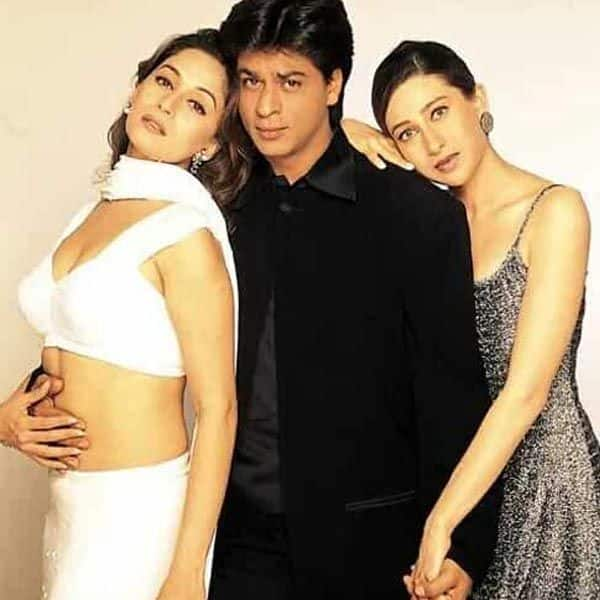

The rest, as they say, is icing on the cake.īut what icing! DTPH features what is undoubtedly one of the most infectiously catchy scores of the ‘90s, with twelve songs that are unusually seamlessly woven into its storyline, and that share musical themes (e.g., the main melody of Are re are forms a sub-melody of Pyar kar) to give the whole a satisfying and almost symphonic quality. Getting Pooja legally transferred from Ajay to Rahul, and smoothing over Nisha’s hurt feelings, is the three-hour story’s main preoccupation. Assuming Rahul and Nisha to be an Item, she proceeds with a lukewarm engagement, seemingly endorsed by her aunt and uncle, to dashing businessman Ajay (Ashay Kumar)-the sort of guy who whisks a girl off to Europe for a weekend of shopping and theme-parking (sans sex, of course). She is Pooja (Madhuri Dixit), and is likewise initially unaware of Rahul's infatuation with her. One of its members is his key assistant and costar Nisha (Karisma Kapoor) who is clearly in love with Rahul, though the latter is, of course, entirely unaware of this and considers her merely a "friend." Is Rahul gay? No way! He dreams of that special girl who is waiting for him somewhere, picture-izing in his mind's eye her “innocent face and intoxicated eyes” (the song Bholi-si surat) one day she actually turns up while Rahul is (what else?) shopping, and before long becomes a member of his production company, and Nisha's replacement when the latter injures her leg. His devoted staff of smartly dressed young people (including a few who are suggestive of Indian regional types) seems to constitute his only family: a postmodern tribe oriented around conspicuous consumption and public display. Rahul has his own production company, housed in the playhouse-studio in which he lives: a capacious loft overlooking an urban dreamscape, and littered with oversized toys, Pepsi machines, custom cars, and firehouse poles. The film's hero, Rahul (Shahrukh Khan) is an Artistic Genius, a popstar producer-performer who stages spectacular "shows" that suggest a combination of opera, arena rock concert, and Las Vegas revue - that no such genre of entertainment actually exists in India (or perhaps anywhere) merely contributes to the film’s fabrication of a realm, like that of Western sci-fi, for unfettered fantasy (though Rahul's closest model is undoubtedly Michael Jackson, whose touring show-concerts made a great splash earlier in the decade). The film swept the Filmfare Awards in nearly every category, and also won a pack of national and regional prizes. This is a striking, even bizarre departure from the Bollywood norm, but in this case it effectively contributes to the creation of an alternative reality that obviously resonated with millions of viewers as well as industry critics.


Two of its three principal characters have no apparent family ties or life histories, and the third is an orphan raised by a devoted aunt and uncle. But whereas HAHK!'s thin story unfolds within a milieu saturated with reconstituted Indian (and especially Hindu) Tradition and focuses on the protracted wedding celebrations of a large extended family, DTPH situates its characters in a surreal urban postmodernity inhabited by single and largely autonomous 20-somethings.

(HAHK!, 1994 note also DILWALE DULHANIYA LE JAYENGE or DDLJ, and KUCH KUCH HOTA HAI or KKHH), Yash Chopra's dazzling DTPH is a relentlessly entertaining consumerist fantasy with a minimal plotline and phenomenally popular sountrack. Like its predecessor among blockbuster-films-of-the-1990s-with-unwieldy-four-part-names-that-became-known-by-Romanized-acronyms, HUM AAPKE HAIN KAUN!. Dialogues: Aditya Chopra Music: Uttam Singh Lyrics: Anand Bakshi


 0 kommentar(er)
0 kommentar(er)
